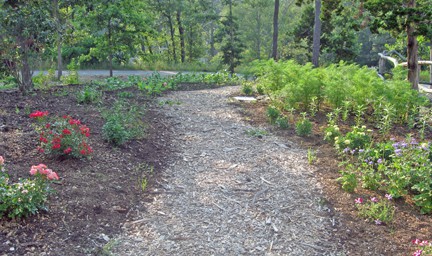When I was in high school in Stevens Point, Wisconsin, I tried out for the girls modern dance group. I prepared an energetic and rather disjointed routine done to “Grant Avenue”, a song from the musical “Flower Drum Song”. After weeks of practice in my basement, I performed it for the audition. It wasn’t pretty.
High school and college allowed me to experiment with such pursuits, to try on possible talents and see if I had a flair for dance, debate or acting. This is one of the best aspects of schooling; we can experiment and assess our aptitude for, and possible enjoyment of, a variety of activities.
Does this ability to experiment become more difficult later in life? Work, family commitments and the other demands on our time dictate that extra efforts will be required to learn a new skill or try something that’s unfamiliar. And as adults we can easily become so used to being accomplished that it’s difficult to be a novice again.
I was thinking about this as I weeded my test garden today. This space was one of the items on my garden wish list when we looked for a new house and property. Every spring I’m fortunate enough to receive plants from a several companies who hope that I’ll grow these plants, love them and then write and speak about the new selections.
Such trial plants are often small, and I usually receive one of each variety, so it’s difficult to place them in an established garden because the mature plants would overwhelm them. For several years I’ve longed for a separate spot where I could grow such plants for assessment.
At the top of the vegetable garden at Poison Ivy Acres we carved out space for just such a garden. We created a cutting garden on one side of the path and a test garden on the other. There are areas of sun and shade, so that each plant can be placed appropriately.
It’s likely that I’ll kill some of the plants that will go in this garden, be ambivalent about a few, and fall in love with others. Isn’t this how experiments often go? My audition for the dance group might not have gone well, and I didn’t enjoy debate all that much. But it’s interesting that other activities I tried when I was young ended up being life-long interests. I did well in the high school forensic group and I wrote for the school paper; today I’m a speaker and writer.
As I weed, I decide that the test garden might teach me something about trying new pursuits and challenges. Outside of the garden we need places to try new things, a location where conditions are optimal for growth. There are adult classes, support groups, and church communities, to name just three. In some ways our entire lives are test gardens, and we just have to decide what we want to try and grow.

A wide path separates the cutting garden, on the right, from the trial garden on the left.

